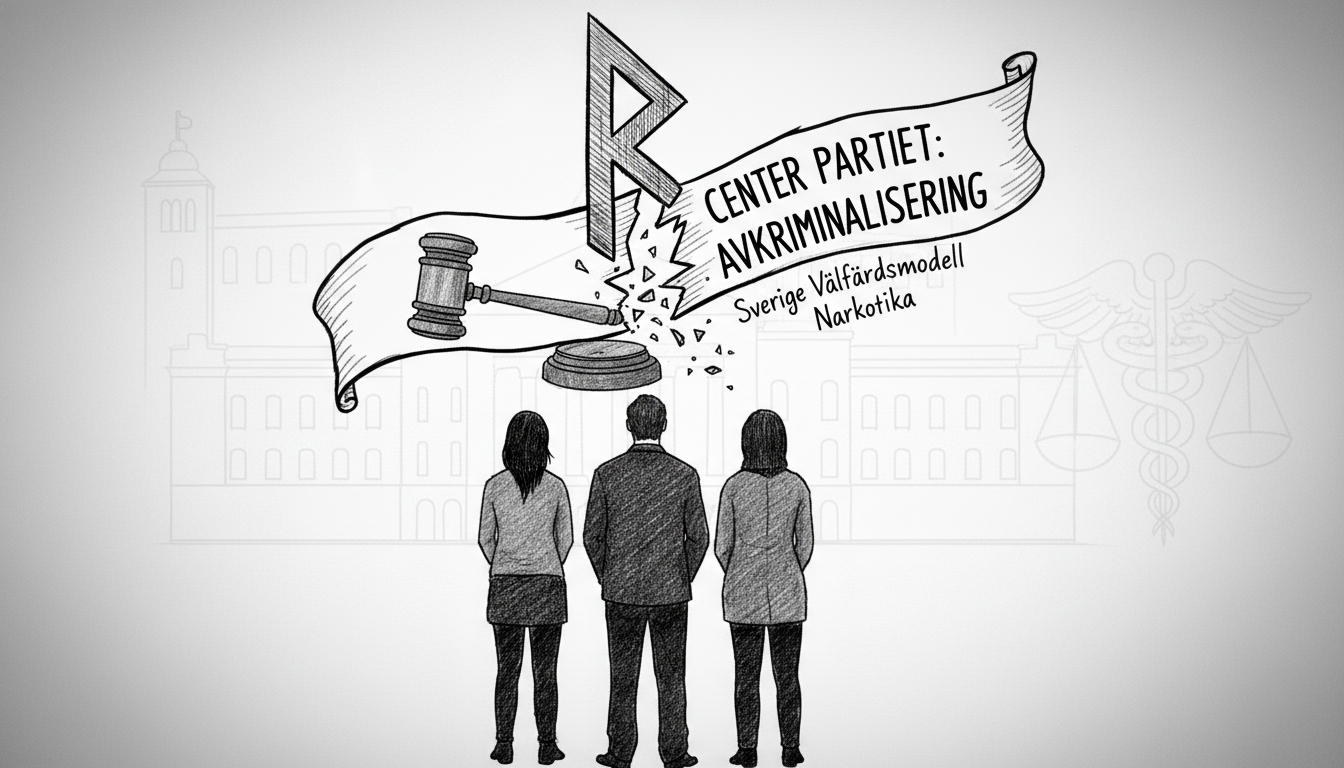Sweden's Center Party made a landmark decision during its national conference. Delegates voted to support decriminalizing the presence of drugs in a person's system. This represents a significant shift in Swedish drug policy discussions.
The proposal generated intense debate among party members. Younger factions within the party pushed for more comprehensive drug law reforms. They specifically advocated for cannabis legalization.
Supporters argue this change would help people seek treatment for addiction. They believe current laws discourage users from getting medical help. Police resources could also focus on major drug crimes instead of personal use cases.
The Center Party now becomes the second Swedish political party supporting this position. The Left Party previously endorsed similar drug policy changes. Both parties want to remove criminal penalties for being under the influence of drugs.
Sweden maintains some of Europe's strictest drug laws. The country has traditionally emphasized zero-tolerance approaches. This political development signals potential changes in Scandinavian drug policy perspectives.
Nordic countries typically coordinate their drug policies closely. Norway recently implemented drug decriminalization measures. Denmark has established supervised drug consumption facilities.
Medical experts have long criticized Sweden's approach to drug users. They argue treatment works better than punishment. Countries with decriminalization often see reduced overdose deaths and lower HIV transmission rates.
This policy shift reflects changing attitudes among Swedish youth. Younger generations view drug use as primarily a health issue. They want resources directed toward rehabilitation rather than incarceration.
The proposal stops short of full drug legalization. It doesn't address possession or distribution laws. The focus remains exclusively on removing penalties for bodily presence of substances.
Political analysts note this could influence upcoming elections. Drug policy has emerged as a defining issue between generations. The Center Party may gain support from urban voters seeking progressive reforms.
Sweden's governing Social Democrats continue supporting traditional drug policies. They argue strict laws protect public health and safety. The political divide ensures drug policy will remain contentious in parliament.
International observers watch Scandinavian drug policy experiments closely. Portugal's decriminalization model showed positive results over two decades. Sweden's potential policy shift could influence other European nations.
The Center Party's decision represents incremental change rather than revolution. It demonstrates how political parties evolve on controversial social issues. Swedish drug policy may be entering a new era of pragmatic reform.

